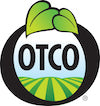Being Thankful: The Changing Food Industry

Reflecting on the Thanksgiving holiday, the concept of "food sovereignty" keeps popping itself to the front of the list. How can we be truly thankful for our food industry if it doesn't give us much of a choice about what we put into our bodies? Could our food system be about to leap into a new era of change?In his recent NY Times article ("Vote for the Dinner Party" October, 10, 2012), author and food expert Michael Pollan wrote: "Clearly there is growing sentiment in favor of reforming American agriculture and interest in questions about where our food comes from and how it was produced. And certainly we can see an alternative food economy rising around us: local and organic agriculture is growing far faster than the food market as a whole."
Pollan's remarks were building up to his support of California's Proposition 37—the bill, had it passed, would have been the nation's first to require labeling of foods sold in the state that contain genetically modified ingredients. He pointed out the blatant lack of trust between consumers and big-ag, from the "pink slime" ammonia-tainted meat issue earlier this year, to New York City's ban on sugary sodas, to environmental and human health concerns over GMOs. There's a break down happening all across the food chain. Consumers want better options than what's being sold to them by the corporate-dominated industry.
It's not that consumers necessarily want corporations entirely out of the food system; in fact, companies that value ethical and sustainable farming practices, true human and environmental health, and justice for American farmers, are experiencing some of the largest growth spikes in the industry. America's organic farmland represents less than 5 percent of the nation's agricultural landscape, but sales are through the roof. According to the Organic Trade Association, overall sales for organics in 2010 were nearly $30 million, growing at a rate of nearly eight percent compared to total U.S. food sales which grew by less that one percent during the same period. Still, as Pollan reminds us, "Not everyone can afford to participate in the new food economy. If the food movement doesn’t move to democratize the benefits of good food, it will be — and will deserve to be — branded as elitist."
While there is clearly a lot of work to be done in making our food supply chain and agricultural system all it can be, there are lots of achievements to be thankful for right now. Here's a few that are particularly noteworthy:
1. Efforts are underway to make fresh and healthy foods more economical through vouchers and acceptance of food stamps at farmers markets.
2. Schools have begun changing up lunch menus for students to include healthier, fresher options. And programs such as Alice Waters' Edible Schoolyards teach children about their food through growing, harvesting and preparing it as part of the curriculum.
3. Food deserts have been identified and incentives are in place to help bring major supermarkets to the under-served regions.
4. Emphasis on locally produced foods has become the norm for many Americans. The USDA reports the number of farmers markets across the U.S. is near 8,000 now versus less than 2000 in the mid-1990s. It's a lot easier to connect with your food when the person who grows it is also selling it to you directly, while also perhaps even sharing a story about life on the farm that week.
5. Efforts to reduce food waste and route healthy, edible foods to shelters and food banks have risen dramatically in recent years. Food Forward, a Los Angeles-based organization gleans fruits dropped from trees and gets the produce to organizations feeding the city's hungry.
6. While Prop 37 failed, the discussion about our food is not going away. Pollan wrote: "In the last couple of decades, a new economy of farmers’ markets, community-supported agriculture (also known as farm shares) and sustainable farming has changed the way millions of Americans eat and think about food." That's certainly reason to be not only extremely thankful, but quite hopeful, too.
Keep in touch with Jill on Twitter @jillettinger
Image: riptheskull
Leave a comment
Comments will be approved before showing up.


